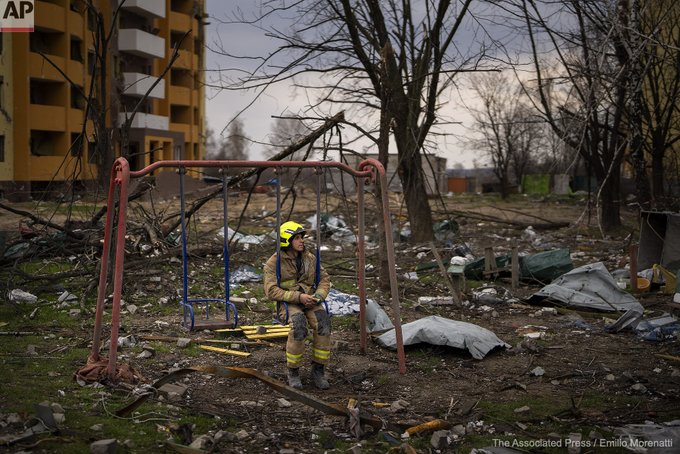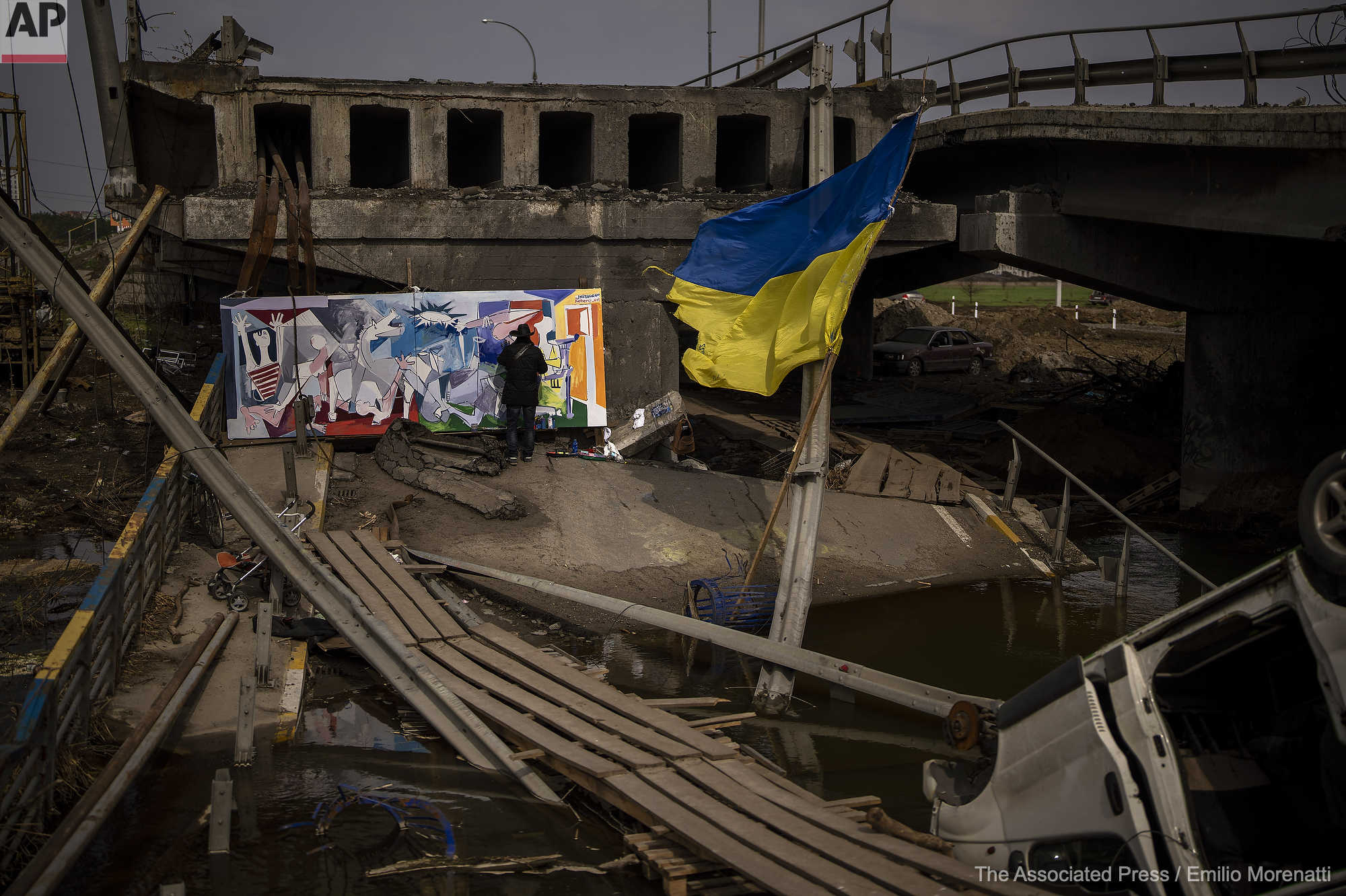
Friday, April 22, 2022. Photo by Emilio Morenatti
Chernihiv
The caption reads, Firefighter takes a break
He sits on a swing, only thing upright
after the bombing. Hands clasped in his lap.
On the ground, metal things spread out,
things that can’t be figured out molecularly,
flattened to tarps, twisted to giant ribbons,
the kind curled with one blade of a scissor.
Straggled limbs of split trees hang
upside down, everything junk, junk—
the scale of it.
He is looking up, as the dying sometimes
do, his face borne by some private light
to the ceiling of a room. The sky dove grey.
Study the photograph like a text
of what is left unsaid. I don’t think
he thinks of his life two months ago,
though I wish for his sake it were so.
This brutal landscape obliterates reverie.
xx
Bucha Body Collector
Beside the white van
he pours
sanitizer
on hands
kept far from
the plaid front
of his jacket
Chapped, cracked,
no longer his,
they belong
to the dead
Hundreds, he says of those
who drew breath buying
potatoes just days ago
From the smell, this one
belongs to yesterday, an old man
walking his dog
Of himself, he says, I was a painter in real life
I don’t know what I am now

“Roberto Márquez, a Mexican artist living in the United States who’s currently in Ukraine, paints a work inspired by Picasso’s canvas of a Spanish city bombed on 26 April 1937, called Guernica, on a bridge destroyed in Irpin, near Kyiv, on Tuesday, April 26, 2022.”
Photo by Emilio Morenatti
xx
Siege in Spring
Those who can make you believe in absurdities will also make you commit atrocities. Voltaire
They spray-painted eye-socket facades with a Z,
and now the esoteric V. Language devolves
to alphabet, bizarre symbology.
Whatever it is, people fight for the myth.
(Our country with its shameful shock and awe)
The invaded want to live, but as boots
toe limp bodies in a row, and children’s eyes
grow old, so old, the invaded become sacrifice.
More the cruelty, more the entrenchment.
Think of your own equivalencies.
The dead, are they buried in your backyard?
Every war ends but how and when,
and what do you propose?
I’m here to listen. You ask by what right,
do I write? Milosz says in the essence
of poetry, always something indecent.
Write poetry only under duress, he says.
Underground, someone hears birds trill
Lysenko on rusted rebar
poking from concrete, iron bones.
The dead sink in dreams
dreamt by birds flying
over golden versts on frequencies
unknown to silent drones.